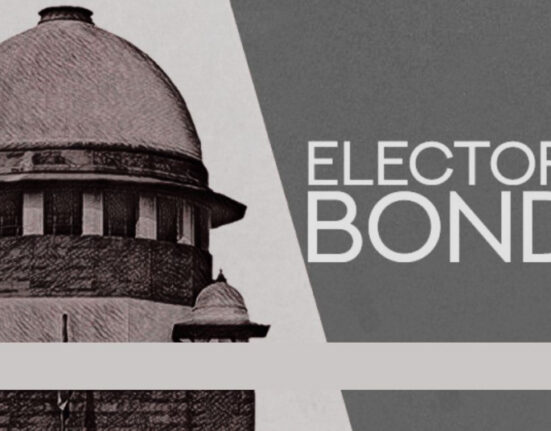Soumya Jain, a student at Chanderprabhu Jain College, Narela Delhi has written this article explaining” Salient Features of the Constitution of India”
Introduction
The Indian constitution is unique in its contents and spirit. Although it had picked up many best features from other constitutions of the world, the Constitution of India has several salient features that distinguish it from the Constitutions of other countries. Our Constitution is also known as the ‘ Bag of borrowings.’ It is true that it had borrowed some features but was drafted according to the Historical perspective, Geographical diversity, and Cultural and traditional characteristics of India.
The Lengthiest Constitution in the World: One of the Major Salient Features of Constitution of India
- The Indian Constitution is the lengthiest and the most detailed of all the written Constitutions of the world.
- While the American Constitution originally consisted of only 7 Articles, the Australian Constitution has 128 Articles, the Canadian Constitution has 147 Articles, the Indian Constitution originally consisted of 395 Articles divided into 22 Parts and 8 Schedules.
- The last numbered Article is 395 and there are 25 parts and 12 schedules in the Constitution.
- Since 1951, several Articles have been added to and several Articles have been omitted from the Constitution.
- The vastness of the country and peculiar problems relating to the language have added to the bulk of the Constitution.
- The Indian Constitution lays down the structure not only of the Central Government but also of the States. The American Constitution leaves the States to draw up their own Constitutions.
Parliamentary form of government:
- The Constitution of India establishes a parliamentary form of government both at the center and at the states.
- The reason for this is that we were accustomed to this type of government. The essence of the Parliamentary form of government is its responsibility to the legislature.
- The President is the Constitutional head of the state. The real executive power is vested in the Council of Ministers whose head is the Prime Minister. The Council of Ministers is collectively responsible to the lower house i.e. Lok Sabha.
- The members of the lower house are elected directly by the people on the basis of an Adult Franchise normally for five years. The position is the same in the States. The government is, therefore, called a responsible government.
- On the other hand, the American Constitution establishes a Presidential type of government based on the principle of separation of powers.
- The president is the real executive who is elected directly by the people for a term of four years.
- All executive powers are vested in him. He is not responsible to the lower house i.e. the Congress.
- The members of his Cabinet are not members of the legislature. They are appointed by the President and are therefore responsible to him.
A unique blend of rigidity and flexibility:
- The nature of the amending process itself in federations had led political scientists to classify the federal Constitution as rigid.
- A rigid Constitution requires a special method of amendment of any of its provisions while in a flexible Constitution, any provisions can be amended by an ordinary legislative process. A written Constitution is generally said to be rigid.
- The Indian Constitution, though written, is sufficiently flexible. It is only a few provisions of the Constitution that require the consent of half of the State Legislatures.
- The rest of the provisions can be amended by a special majority of Parliament.
Fundamental Rights:
- The incorporation of a formal declaration of Fundamental Rights in Part III of the Constitution is deemed to be a distinguishing feature of a democratic State.
- Article 12 to 35 contained in Part III of the Constitution deal with Fundamental Rights. These are: Right to equality, including equality before law, prohibition of discrimination on grounds of religion, race, caste, sex or place of birth, and equality of opportunity in matters of employment. The state is empowered to make any special provision for women i.e. reservation, against violence etc.
- These rights are prohibitions against the State. The State can not make a law that takes away or abridges any of these rights of the citizens guaranteed in Part III of the Constitution.
- If it passes such a law it may be declared unconstitutional by the courts. But the mere declaration of certain Fundamental Rights will be useless if there is no machinery for their enforcement.
- Our Constitution has, therefore, conferred on the Supreme Court the power to grant the most effective remedies in the nature of writs – a) Habeas Corpus, b) Mandamus, c) Prohibition, d) Quo Warranto, e) Certiorari
- Whenever these rights are violated, the court issues writs for enforcement of these rights.
- Fundamental rights are not absolute rights. They are subject to certain restrictions. Our Constitution tries to strike a balance between individual liberty and social interest.
Directive Principles of State Policy:
- Directive Principles of State Policy are contained in Part IV of the Constitution.
- It sets out aims and objectives to be taken up by the states in the governance of the country.
- Unlike Fundamental Rights, these rights are not justiciable.
- If the State is unable to implement any provisions of Part IV, no action can be brought against the State in a law court.
- The idea of a welfare state envisaged in our Constitution can only be achieved if the States endeavor to implement them with a high sense of moral duty.
A Federation with a strong centralizing tendency:
- The most remarkable feature of the Indian Constitution is that being a federal Constitution it acquires a unitary character during the time of emergency.
- During the proclamation of an emergency, the normal distribution of powers between the center and the states undergoes a vital change.
- The Union Parliament is empowered to legislate on any subjects mentioned in the State list. The central government is empowered to give directions to states as to the manner in which it should exercise its executive powers.
- The Union government can also alter the financial arrangements between the center and states.
- Thus, during the proclamation of emergency, all powers are centralized in the Union government.
Adult Suffrage:
- Article 326 of the Constitution confers on the citizens of India the right to vote in the general elections to the House of People and to the Legislative Assemblies of States.
- Every citizen who is not less than 18 years of age (reduced from 21 years by the Constitution, sixty-first Amendment) Act, 1988.
- Otherwise not disqualified under the Constitution or any other law on the grounds of unsoundness of mind.
- There is one general electoral roll for every territorial constituency, as stated in Article 325 of the Constitution, for election to either the House of Parliament or to the House or Houses of State Legislature.
- This Article further specifies that no person shall be ineligible for inclusion to the electoral roll on the grounds only of religion, race, sex, caste, or any of them.
- Articles 330 and 332 provide for the reservation of seats for the SC and ST in the House of People and Legislative Assemblies respectively.
- Article 331 provides for the representation of members of the Anglo-Indian community in the House of People.
- In the case of Indira Gandhi vs. Raj Narain, popularly known as the Election case, the right to free and fair elections has been declared to constitute the Basic Structure of the Constitution of India.
Secular State: One of major Salient Features of Constitution of India
- A secular state has no religion of its own as recognized religion of the State.
- It treats all religions equally.
- In a secular state, the state only regulates the relationship between man and man.
- It is not concerned with the relationship of man with God.
- Secularism is subject to ‘democratic socialism’. Religious freedom cannot, therefore, be used to practice economic exploitation.
Judicial Review:
- Power of courts to pronounce upon the constitutionality of legislative acts which fall within their normal jurisdiction to enforce and the power to refuse to enforce such as they find to be unconstitutional and hence void.
- The Constitution has vested power in the High Courts and the Supreme Court to determine the constitutional validity of provisions of statutes.
- If the provisions of the Statutes are found to be violative of any of the Articles of the Constitution which is the touchstone for the validity of all laws the Supreme Court and the High Courts are empowered to strike down the said provisions.
- It is evident that Montesquieu was motivated by his desire to limit unchecked and absolute power in any one branch of the government when he formulated his doctrine of separation of powers.
- It is by balancing each of these powers against the other two that the efforts in human nature towards tyranny can alone be checked and restrained and any freedom preserved in the Constitution.
- Judicial Review is thus the interposition of judicial restraint on the legislative as well as the executive organs of the government.
- There is a supreme law that constitutes the foundation and source of other legislative authorities in the body polity, it proceeds that any act of the ordinary law-making bodies which contravenes the provisions of the supreme law must be void and there must be some organ that is to possess the power or authority to pronounce such legislative acts void.
- The doctrine of Judicial Review was for the first time propounded by the Supreme Court of America.
Single Citizenship:
- Though the Constitution of India is federal and provides for dual polity i.e. Centre and States, it provides for single citizenship for the whole of India.
- The American Constitution provides for dual Citizenship, i.e., the citizen of America and State citizenship.
- On the other hand, there is only one citizenship in India, i.e. the citizenship of India.
- There is no State citizenship.
- Every Indian is a citizen of India and enjoys the same rights of citizenship no matter in what State he resides.
Fundamental Duties:
- The Constitution (42nd Amendment) Act, 1976 introduced a Code of ten “ Fundamental Duties” for citizens with the (86th Amendment) Act, 2002, this Code has become eleven duties.
- The Fundamental Duties are indeed to serve as a constant reminder to every citizen that while the Constitution has conferred explicitly on them certain Fundamental Rights.
- It also requires the citizens to observe certain basic norms of democratic conduct and democratic behaviors.
An Independent Judiciary:
- The mere enumeration of a number of fundamental rights in a Constitution without any provision for their proper safeguards will not serve any useful purpose.
- Indeed, the very existence of a right depends upon the remedy for its enforcement.
- Unless there is a remedy there is no right, goes a famous maxim.
- The Constitution of India has established an independent and impartial judiciary with the power of judicial review for this purpose.
- It is the custodian of the rights of citizens.
- Besides, in a federal Constitution, it plays another significant role of determining the limits of power of the Centre and States.[1]
Salient Features of the Constitution of India borrowed from other constitutions
| BRITAIN | Parliamentary government | Rule of law | Legislative procedure | single citizenship | cabinet system |
| IRELAND | DIRECTIVE PRINCIPLES OF STATE POLICY | METHOD OF ELECTION OF PRESIDENT | THE IDEALS OF JUSTICE( SOCIAL, ECONOMIC, AND POLITICAL) EXPRESSED IN THE PREAMBLE | NIL | NIL |
| USA | REMOVAL OF SUPREME COURT AND HIGH COURT JUDGES | FUNDAMENTAL RIGHTS | IMPEACHMENT OF PRESIDENT | JUDICIAL REVIEW | INDEPENDENCE OF JUDICIARY |
| CANADA | RESIDUARY POWERS VEST WITH THE CENTRE | ADVISORY JURISDICTION OF SUPREME COURT | CENTRE APPOINTS THE GOVERNORS AT THE STATES | CENTRIFUGAL FORM OF FEDERALISM WHERE THE CENTRE IS STRONGER THAN THE STATES. | NIL |
| AUSTRALIA | CONCEPT OF CONCURRENT LIST | FREEDOM OF TRADE AND COMMERCE | ARTICLE 108 I.E. JOINT SITTING OF THE TWO HOUSES | NIL | NIL |
| USSR | FUNDAMENTAL DUTIES | IDEALS OF LIBERTY, EQUALITY, AND FRATERNITY | NIL | NIL | NIL |
| FRANCE | CONCEPT OF “REPUBLIC” | IDEALS OF LIBERTY, EQUALITY , AND FRATERNITY | NIL | NIL | NIL |
| SOUTH AFRICA | AMENDMENT OF THE CONSTITUTION | ELECTION OF MEMBERS OF THE RAJYA SABHA | NIL | NIL | NIL |
| GERMANY | FUNDAMENTAL RIGHTS ARE SUSPENDED DURING EMERGENCY | NIL | NIL | NIL | NIL |
| JAPAN | CONCEPT OF “PROCEDURE ESTABLISHED BY LAW” | NIL | NIL | NIL | NIL |
[1] Dr. j. n. pandey
[2] Jagranjosh.com







Leave feedback about this